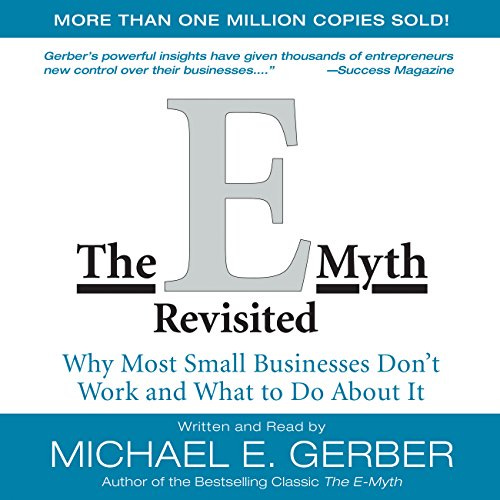The E-Myth Revisited
An M3 Weekly Book Review
Many of us engaged in missional enterprise are entrepreneurs, starting small businesses with a vision for successful triple-bottom-line enterprises. As such, we are eager for all the guidance we can get for the challenging journey.
The E-Myth Revisited by Michael E. Gerber is one of the most highly recommended books for aspiring small business owners. First published in 1995 (and an update of the original book The E Myth), The E-Myth Revisited, as stated in its subtitle, seeks to explain “Why Most Small Businesses Don’t Work and What to Do About It.” How well does the book do that, especially for missional entrepreneurs?
The book succeeds in this goal in several ways:
- Gerber captures a critical difficulty faced by many people who start businesses: they start not with the mentality of an entrepreneur, but with the viewpoint and approach of what Gerber calls “the technician.” This idea that every person starting a business is a natural entrepreneur is what Gerber calls the “E-Myth.”
- The book explains how three different personalities or roles are needed for a successful business start-up, adding the role of “manager” to the “entrepreneur” and “technician” (in more recent writings, Gerber describes Four Personalities).
- Gerber introduces the concept of the “Franchise Prototype”,” the idea that business owners should create the systems of the business from its inception as if they are planning to franchise the business, whether they ever do that or not. Gerber argues that having that mentality encourages them to build the systems of the enterprise, freeing them to work “on” the business rather than “in” it.
At the same time, there are aspects of the book that missional entrepreneurs may find less than helpful:
- Gerber speaks from extensive experience consulting small businesses, but admittedly bases his advice on his own observations and “epiphanies,” rather than research. If you prefer empirically-grounded research-oriented books, like those by Jim Collins and Jerry Porras, you will find E-Myth Revisited sorely lacking.
- Much of the book is a series of partly fictionalized dialogues between Gerber and “Sarah,” the owner of a pie shop. While these conversations provide a narrative framework and a personal touch to his business advice, one can easily tire of Gerber’s flowery descriptions of their interactions.
- Most importantly, while Gerber encourages the business owner to focus on a “primary aim” beyond the business itself, his aims sound like either some kind of mystical enlightenment or just a way to have an independent revenue stream. In missional enterprise, glorifying God is our primary aim. We believe that God is glorified through the success of the business, the fulfillment of the Great Commission, and the transformation of the community.
Bottom line? Like any business book, the discerning reader will be able to harvest the wheat and cast off the chaff. If you are starting a business, and the flowery language and lack of empirical backing of The E-Myth Revisited don’t turn you off, you can be helped by considering some of the key insights explained in the book.
Verse(s) of the Week:
Better is a little with righteousness than great revenues with injustice. The heart of man plans his way, but the LORD establishes his steps. Proverbs 16:8-9 (ESV)
Even as we seek to make plans, let’s reflect this week on the importance of grounding our endeavors in God’s righteousness and reliance upon Him to establish our steps.
